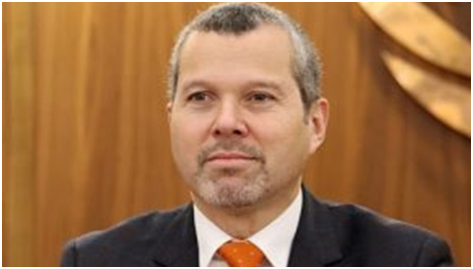
The following
interview carried out by Robban Assafina explains this vision further. Part of
the Interview follows:
First of all, Congratulations for your new role; what is your main
vision for the International Maritime Organization (IMO) as the
Secretary-General?
The maritime industry is rapidly changing, even as
it faces multiple global challenges, from climate change impacts to threats to
peace and security. It must be efficient, robust and forward-looking to survive and
thrive. I look at the next four years as being an era of progression for IMO, driven
by a commitment to transparency, inclusion and diversity.
I’m determined to
apply all my experience as a former delegate, a negotiator and chair of main
IMO governing bodies to support the IMO decision-making process and reach
agreements, even when that sometimes involves difficult discussions. The
Organization has a long track record of bringing about concrete change through
its international instruments, regulations and technical assistance programmes
– I intend to amplify this trend.
Can you highlight a few key initiatives you plan to undertake to advance
the goals and mission of the IMO?
I have outlined four strategic priorities for the
Organization: our work, our support, our image and our people.. I aim to elevate IMO’s global profile and reputation
as a trusted, expert partner – both within the maritime sector and beyond – as
well as a champion for the shipping industry. My goal is to transform the
Organization into a magnet for world-class talent and a centre of influence
that the finest minds aspire to be part of.
With ambitious global targets to achieve net-zero emissions, what
specific initiatives or regulations is the IMO prioritizing to accelerate
decarbonization within the maritime industry by 2050?
Decarbonisation of the maritime industry one of our
highest priorities at IMO – it is a huge challenge but also an opportunity to
make the sector more sustainable and aligned with global commitments on climate
change. The pathway to
net-zero has been adopted in the 2023 IMO Strategy on Reduction of GHG
Emissions from Ships, which sets clear targets and check points for emissions
reductions. Member States are currently discussing mid-term measures to deliver
on the reduction targets, including a global fuel standard and a pricing
mechanism for GHG emissions. Member States have committed to adopt these
measures in 2025.
What role do you see the IMO playing in supporting the development of
maritime education and training programs globally?
The shipping industry
requires an adequate supply of seafarers to operate the 50,000 ships that are
travelling on the world’s oceans at any given time. We need to encourage new
generations of young people to take up seafaring as a career, as well as
address the gender imbalance in maritime education and seafaring training. The
basis for seafarer training is the International Convention on Standards of
Training, Certification and Watchkeeping for Seafarers (STCW), 1978, which is
undergoing a comprehensive review to ensure the competencies within the
Convention and the Code are adapted to new technical developments in shipping,
environmental protection and climate change.
IMO validates an
extensive series of model course to support training institutes across the
globe to deliver high-level training and conducts regular train the trainer
programmes on specific areas…
What steps will you take to address challenges in international shipping
that may impede smooth trade flows?
Shipping is the
backbone of international trade, but geopolitical tensions and threats to
maritime security can hinder smooth trade flows and threaten the right to
freedom of navigation. The attacks on international shipping in the Red Sea
area are a clear example. In such situations, it is vital to work closely together with governments, partners in the
industry and the international community to de-escalate tensions and ensure the
protection of seafarers, ships and cargoes. Ships must be allowed to trade
worldwide unhindered, in accordance with international maritime law. We
must advocate for the safety of seafarers, who are innocent victims in these
situations.
How do you plan to balance economic considerations with environmental
and social priorities in your decision-making processes?
I have always believed
that it is essential to engage all sectors of society in decision-making
processes that affect them, and I will continue to ensure that there are ample
opportunities and avenues for governments, industry and civil society to raise
concerns and provide input into discussions of decision-making bodies. We also
arrange forums for discussions, commission expert studies and invite
submissions on various issues.